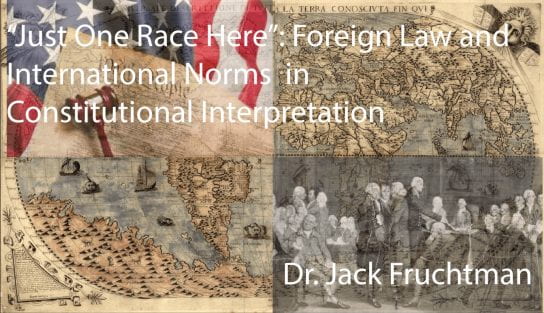Volume LIII – Number 1
Dr. Jack Fruchtman
Abstract: The Constitution of the United States – the document by which Americans are legally anchored – is subject to various jurisprudential interpretations. Such variance yields legal ambiguity in a number of realms and ultimately impacts the lenses through which justices approach cases presented to the Supreme Court. Countless variables encountered throughout the course of justices’ legal careers ultimately contribute to nuances in jurisprudential interpretation; foreign law serves as one such variable. For centuries, Supreme Court justices have debated the utility of incorporating aspects of foreign law in their own evaluations of American law. For those justices who view the Constitution through the framework of originalism, including Clarence Thomas, Neil Gorsuch, and the late Antonin Scalia, the Constitution is “dead.” By extension, therefore, foreign law, with exception to “old English law,” has no place in impacting how American justices approach their own decision-making. Contrarily, justices who employ legal interpretations based on a living constitutional basis, including Stephen Breyer, Horace Gray, and Ruth Bader Ginsburg, find that utilizing international legal precedents is conducive to formulating sound contemporary constitutional law. This article, through examining centuries of constitutional debates, the aforementioned contrasts in jurisprudence, and applications of constitutional law, aims to analyze the degree to which international law has historically driven and still drives legal decision-making in the United States.
Keywords: Constitution, Jurisprudence, Foreign Law, Originalism, Living Constitution
About the Author: Dr. Jack Fruchtman is a distinguished constitutional law scholar who has instructed and advised students at Towson University for forty years. Until his retirement, he served as Towson University’s Law and American Civilization Program Director and as the adviser to the Towson University Prelaw Society. He received his Ph.D. in Political Science from The Johns Hopkins University.



